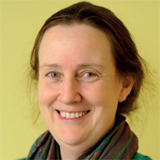 I was a bit of a star in my early 30s at Harvard’s School of Public Health. On a fully funded and prestigious Harkness Fellowship (so a treasured person in the Harvard lexicon), I was bubbly, thin, well dressed, elected to student government, volunteering for just about everything, and winner of the competition to represent graduate students at graduation. The clever, golden girl with boundless energy, no family commitments, and junior enough not to be a threat. They loved me. I loved myself.
I was a bit of a star in my early 30s at Harvard’s School of Public Health. On a fully funded and prestigious Harkness Fellowship (so a treasured person in the Harvard lexicon), I was bubbly, thin, well dressed, elected to student government, volunteering for just about everything, and winner of the competition to represent graduate students at graduation. The clever, golden girl with boundless energy, no family commitments, and junior enough not to be a threat. They loved me. I loved myself.
Fast forward six years—I return to Harvard as a student’s spouse with a baby in tow. Same place, same person, five more years experience at a much more senior level including in the UN, WHO, a war zone, and heading next to a professorship in Australia. I was just about invisible, pushing an inexpensive buggy across Harvard front square. Everyone looked at the cute baby. No one sought my eye. My IQ dropped 30 points. My degrees were not assumed. I tried sucking my baggy tummy in—to no effect. A designer buggy might have helped, but our cash had gone on living expenses. Harvard looked a bit pompous when I was no longer a full member of the club.
We all get stereotyped. Many signals add up to whether people take you seriously or not. There is a fascinating exercise where a group of people are let loose in a room, each with a number from one to 10 on their forehead. They are told to go and find a partner and maximise their joint scores. Everyone runs to the nines and 10s and tries to catch their attention. Pretty soon the nines and 10s pair up with each other, a bunch of admirers clamouring all around. The nines and 10s will be forever feted and may never understand what it is like to be rejected, bottom of the pile. The ones and twos get no attention, and have to settle with each other, casting longing and resentful glances over to the nines and 10s. They may lose faith that anyone thinks they are important or worthy of attention. The majority sit somewhere in the middle: average, not aspiring to the dizzy heights of being a nine or a 10, and quietly grateful that they are not at the bottom of the heap, being ignored. And that, folks, is how life works.
It is easy on the fast track to whizz by those who are not, and to start believing that you really are more important/ attractive/ worthy of attention/ wise. Doctors are prime candidates for developing an unhealthy sense of their own self importance. We are at the top of the pecking order. We are the high number on forehead people. We are listened to. Which is perhaps why those lonely, low ranking days with my baby, my tracksuit bottoms, and my buggy were really worth their weight in psychological gold.
All nines and 10s have clay feet. We get pregnant, we get older, we put on weight, we go deaf, we become patients, bits fall off or get replaced, we change, and we fail. And, of course, we retire. A good dose of humble pie is nutrition for the soul. Nothing hurts or heals as much as a fall from attention.
Collect and celebrate the buggies of professional life.
Mary E Black is a medical doctor currently on the NHS Executive fast track programme in London. She is on Twitter @DrMaryBlack and uk.linkedin.com/in/maryblack/
